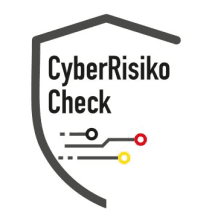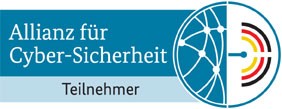Chief Information Security Officer (CISO): Tasks, Importance and Strategies for Digital Security
The digital transformation has forced companies worldwide to continuously rethink their security strategies. In this context, the role of the Chief Information Security Officer (CISO) is gaining increasing importance. The aim of this guide is to provide a comprehensive insight into the tasks, responsibilities, and challenges of a CISO. The following sections will highlight not only the fundamental aspects of this position but also answer the essential W-questions to clarify the power and significance of the CISO in the modern corporate world.
What exactly is a Chief Information Security Officer (CISO)?
The Chief Information Security Officer, or CISO, is a senior manager responsible for the overall IT security strategy of a company. He plays a crucial role in ensuring the confidentiality, integrity, and availability of information within an organization. In addition to establishing security policies, the CISO is also responsible for coordinating risk mitigation measures and incident response in the event of security incidents. He works closely with other executives and IT teams to develop and implement a comprehensive security concept.
Why is the role of the CISO so important?
In times when cyberattacks are becoming more sophisticated and frequent, a well-functioning IT security management system turns into a critical competitive factor. The CISO ensures that security gaps are identified and closed quickly to avoid financial damage and reputational loss. A clearly defined strategy in the field of information security helps to meet compliance requirements and protects sensitive data from unauthorized access. Especially in industries where data protection and the security of customer data are of utmost importance, effective management of the IT environment is essential.
How is a CISO established in companies and what qualifications are required?
The appointment of a CISO typically occurs at the board level, underscoring the strategic importance of this position. An ideal candidate should have an extensive background in IT security as well as in-depth knowledge in the fields of risk management and data protection. Many CISOs have academic qualifications in computer science, information security, or related disciplines and have supplemented their education with certifications such as CISSP (Certified Information Systems Security Professional) or CISM (Certified Information Security Manager). Furthermore, skills in project management and communication are crucial, as implementing security strategies often requires interdisciplinary collaboration.
What tasks and responsibilities does a CISO assume?
The range of tasks for a CISO is broad and diverse. At its core, the responsibility lies in the design, implementation, and monitoring of comprehensive security strategies. The main tasks include:
Development and implementation of security policies: The CISO creates comprehensive security standards that serve as the foundation for all IT-related activities of the company. This includes policies for data access, handling sensitive information, and the use of networks and end devices.
Risk analysis and management: Regular security reviews and risk analyses are essential for identifying potential vulnerabilities in the system. Based on these analyses, the CISO develops strategies for risk mitigation and avoidance.
Monitoring and incident response: In the event of a security incident, the CISO coordinates cross-departmental collaboration and ensures a quick response. This includes analyzing the incident, taking immediate actions, and long-term optimization of the security infrastructure.
Training and awareness: Another essential area of responsibility is the regular training of employees. By raising workforce awareness about the importance of IT security, potential risks can be mitigated early on.
Collaboration with authorities and external partners: Especially in the case of large-scale cyberattacks or security gaps, collaboration with external experts and governmental institutions is of great importance. The CISO serves as the central contact person who coordinates and exchanges information in times of crisis.
What strategic challenges arise in the daily work of a CISO?
The constantly evolving threat landscape presents CISOs with ongoing challenges. These challenges include:
• Technological developments: New technologies such as cloud computing, the Internet of Things (IoT), and artificial intelligence offer numerous advantages, but also open new attack vectors. Continuous adaptation of security strategies to these technological advancements is essential.
• Growing complexity of IT infrastructures: With the increasing interconnectivity of systems and data, the complexity of IT infrastructures also grows. This requires a structured and holistic approach to keep all security aspects in view.
• Skilled labor shortage: Despite the increasing demand for IT security experts, the market is characterized by a significant shortage of skilled workers. Therefore, the CISO also faces the challenge of recruiting qualified personnel and retaining them in the company long-term.
• Legal and regulatory requirements: Companies must adhere to a multitude of legal requirements and industry standards. Complying with these regulations requires the constant alignment of internal security measures with current legal stipulations.
What role does the CISO play in the context of the internationally interconnected economy?
In a globalized economy where data and information flow across borders, the CISO occupies a key position. He must not only develop internal security strategies but also consider international standards and best practices. It is important to be informed about the different regulatory frameworks in various countries and to implement cross-border security concepts. Engaging with international experts and participating in global networks contributes to the continuous improvement of one's security architecture.
How does the CISO influence corporate culture?
An essential, often underestimated aspect of a CISO's work is designing a security-conscious corporate culture. Through targeted training and regular success analyses, not only is the technical security level increased, but the security awareness of each individual employee is strengthened. The CISO thus promotes a culture where information security is embedded as an integral part of the daily business process, with every employee making a contribution. This cultural shift can significantly contribute to risk minimization and greatly enhance the company's resilience against cyberattacks.
What are the forward-looking trends in information security that CISOs must consider?
The world of IT security is in a constant state of flux. Future trends and challenges include, among others, the advancement of artificial intelligence in threat detection, the increasing use of automation techniques in incident response, and the integration of security solutions into DevOps processes. Furthermore, the use of quantum-safe encryption technologies will soon become a necessity as advancements in quantum computing could open new attack possibilities. Therefore, CISOs must continuously invest in research and innovation to ensure their defense mechanisms are future-proof.
When is the right time to integrate an experienced CISO into a company?
The implementation of the role of a CISO is a critical step, regardless of the company's size. Especially in times of tough market conditions and intense digital transformation, an experienced CISO offers not only protection but also strategic advantages. Companies that are already in the developmental phase of their IT infrastructure or focus on digital business models should involve a CISO early on. Through proactive measures, risks can be minimized, and long-term competitive advantages can be achieved that may be decisive in a dynamic market environment.
What other key competencies should a modern CISO possess?
In addition to technical knowledge, soft skills are also crucial for the success of a CISO. These competencies particularly include communication skills, strategic thinking, and the ability to present complex issues in an understandable manner. Innovation capability and flexibility also play an important role, as the rapidly changing cyber environment often requires unpredictable adaptations. Additionally, a CISO should possess a strong understanding of business processes to efficiently integrate security measures into the corporate strategy while always keeping the
Strengthen your security strategy now!
Contact our expert team to take your information security to the next level.
Chief Information Security Officer (CISO) in Germany: Current Developments
The importance of the Chief Information Security Officer (CISO) in Germany is continuously increasing. According to current studies by the Federal Office for Information Security (BSI), German companies are increasingly affected by cyber threats. The Bitkom Association reports that 84% of German companies have been victims of cyberattacks in the last two years.
Especially in the field of Chief Information Security Officer (CISO), the following trends are evident:
Increasing investments in preventive security measures
Heightened awareness for comprehensive security concepts
Integration of Chief Information Security Officer (CISO) into existing compliance frameworks
EU Compliance and Chief Information Security Officer (CISO)
With the introduction of the NIS2 directive and stricter GDPR requirements, German companies must adjust their security strategies. The Chief Information Security Officer (CISO) plays a central role in fulfilling regulatory requirements.
Important compliance aspects:
Documentation of security measures
Regular review and updating
Proof of effectiveness to regulatory authorities
Practical implementation in daily corporate life
The integration of the Chief Information Security Officer (CISO) into everyday corporate life requires a structured approach. Based on experience, companies benefit from a gradual implementation that considers both technical and organizational aspects.
Think of the Chief Information Security Officer (CISO) as insurance for your company: The better prepared you are, the lower the risk of damage from security incidents.
Further security measures
For a comprehensive security strategy, you should combine the Chief Information Security Officer (CISO) with other security measures:
Vulnerability Management - Systematic vulnerability management
Penetration Testing - Comprehensive security tests
Security Hardening - Employee awareness
Incident Response Plan - Preparedness for security incidents
Conclusion and next steps
The Chief Information Security Officer (CISO) is an essential building block of modern cybersecurity. Investing in professional Chief Information Security Officer (CISO) measures pays off in the long run by increasing security and compliance adherence.
Do you want to optimize your security strategy? Our experts are happy to assist you in implementing Chief Information Security Officer (CISO) and other security measures. Contact us for a non-binding initial consultation.
🔒 Act now: Have your current security situation assessed by our experts
📞 Request consultation: Schedule a free initial consultation on Chief Information Security Officer (CISO)
📋 Compliance check: Review your current compliance situation
📌 Related topics: Cybersecurity, IT security, compliance management, risk assessment




